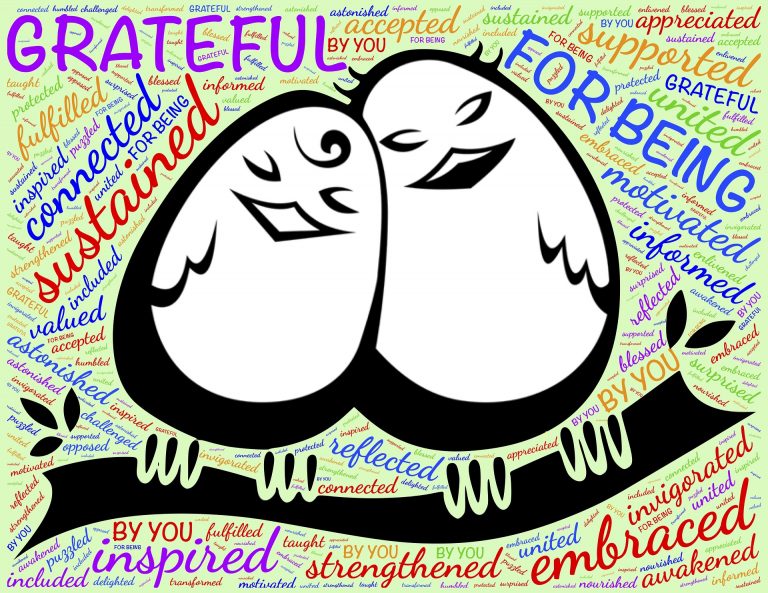
The meaning of life.
As we’ve previously mentioned in other articles for there to be a meaning of life (as opposed to the meaning you may choose to give your own life) it has to meet the following criteria to be true…
CUOT
It has to be compulsory, universal (applicable to everyone) and obvious, so obvious in fact that there wouldn’t even be a question as to the meaning of life, everyone would know why we exist and understand our role is in the grand scheme of things making it unquestionably true.
Lots of people may tell you what they think the meaning of life to be, but unless it’s compulsory, universal, obvious and by extension unquestionably true to all then they are wrong!
No person, group, religion or philosophy in history has satisfied the CUOT test with their observations which should be enough to tell you that there is no meaning to life…
“If you judge, investigate.”
Seneca
At best they get fifty percent of the way, which is the case with the idea of suffering being the reason why we are here.
We’re born to suffer, but are we?
If you live you will at some time suffer, if not once then repeatedly, whether it’s a physical ailment that distresses your body as an infant giving rise to feelings of suffering or a mental health issue you may have when you get older, everyone will suffer, unless of course they can develop a helpful discipline of mind, a philosophy to negate or reduce their feelings of suffering.
“It is the power of the mind to be unconquerable.”
Seneca.
Suffering can only take place in the mind, thankfully the mind is the one place where you may reign supreme and choose not to give assent to the negative feelings that come from aches, pains, illnesses, the unfairness of life or the ill-will of others. This is not to say that you won’t ‘feel ill,’ or aggrieved, only that you can choose not to suffer as a result of it.
So suffering is compulsory until you develop the fortitude of mind to realise that it is not.
You can, however, claim that suffering is universal as everyone will invariably endure it, but thankfully it’s not obviously the meaning of life, this means that suffering as a reason to exist cannot be considered to be unquestionably true. Therefore the meaning of life is not ‘to suffer.’
On the flip side the meaning of life may well be to avoid suffering, let’s face it as human beings we all have an instinct to avoid suffering.
We only endure suffering if we can get something else in return for it. We might do a job that we hate in order to get paid enough to have some fun on the weekends, or we might work in the fields conducting back-breaking labour because we can grow enough food to avoid starvation.
To starve is to suffer, hard labour is choosing to endure a multitude of daily indignities as an alternative to death. We desire to live, and to live well at that, without suffering.
Whether you are man or woman who lives in a high tech western economy or an indigenous peasant of the east growing rice in a paddy field, a great deal of your day will be spent enduring or avoiding suffering. Indeed the history of human civilisation can be seen as just a mass attempt at the avoidance of suffering.
So is the meaning of life to avoid suffering? Well, It’s compulsory as nobody enjoys suffering, it’s universal as all human beings are more or less the same, but not obvious, nobody thinks of their daily routine being one of the avoidance of suffering, although it’s unquestionably true.
We can see from the use of the CUOT filter that suffering is not the meaning of life as only two of the conditions required are true, the avoidance of suffering is a better candidate as three of the conditions are true, but not all.
This also makes it obvious that enduring suffering is not a good life, avoiding suffering is clearly a better life, albeit not perfect as wise men know a billion ways to suffer. Suffering can come in many forms. You can suffer subconsciously without your conscious mind even knowing it. This is the root of all kinds of mental illness.
“We suffer more in imagination than reality,”
Seneca,
It’s interesting to note that the early philosophers of the ancient world never asked about a specific meaning to life that was applicable to all, instead they asked how it could be possible to achieve a good life. Are there things that we can all do to live a good life?
Many branches of rational philosophies came about as a result of this particular question, ‘how can we live a good life?’
So we turn our attention to the Stoics of which professed peace of mind to be a good life recognising that suffering could lead to wisdom, as suffering and wisdom often go hand in hand. In other words that suffering is a rapid pass to wisdom.
A wise man once said that there are three paths to wisdom, the first is to fall over a log, the second is to watch someone else fall over a log and the third is to hear about someone that has fallen over a log.
The first and second paths represent different degrees of ‘a-posteriori,’ knowledge which is simply stuff that can only be known with direct experience via the senses.
The third path represents indirect experience or ‘a priori,’ knowledge that can be known without experience or sense data. It’s also true to say that things that you experience directly are often the best forms of knowledge; falling over that log is painful, you will avoid doing it in future.
Stoics agree that desire and attachments that are unfulfilled lead to suffering so giving up desires and attachments is clearly the right thing to do in order to maintain your peace of mind.
Desiring what you cannot have is a folly, and being overly attached to what you already have is also a folly; fortune can take it all away in an instant and anything that you own or have within your possession doesn’t really belong to you, it belongs to the universe, you are just the temporary keeper of the arrangements of matter that you call, objects, things, tools and houses.
It’s wise to be a good custodian of the things that are currently in your possession, but don’t lament their passing when they finally go or can serve you no longer.
“What fortune has made yours is not your own.”
Seneca, Letters from a Stoic
Stoics state that you should live as fully as possible in the present moment, that to spend time thinking about the future or the past is to rob you of the vital present.
“The part of life we really live is small.’ For all the rest of existence is not life, but merely time.”
Seneca
For example, anxiety or worry, which put simply is fear projected into the future. Whilst regret is the suffering of past follies, misdeeds or missed opportunities. Both regret and worry are a complete waste of time and you will do well if you can be rid of them.
“Two elements must therefore be rooted out once for all, – the fear of future suffering, and the recollection of past suffering; since the latter no longer concerns me, and the former concerns me not yet.”
Seneca
You can rest assured that human nature being what it is, is inherently flexible and adaptive, when the worst happens you will know what to do, big problems are easy to solve and not even a concern which is why you don’t think about the big stuff of life as the solutions are obvious.
It’s the small stuff that suddenly looms large in our minds, to become the things that we worry about, whether it’s the pressures of work, drama in the home, conflicts with friends and co-workers, financial worries or the stress of getting everything done to name but a few, it’s the small stuff that we have little to no control over that really worries us. So the Stoic position is simply not to worry, you’ll deal with it when it happens, or take steps now to influence the outcome should you have any control or leverage over the events. If you have none, then don’t even think about it, as there’s nothing you can do anyway. There are better things to spend your mental energies on.
“The mind that is anxious about future events is miserable.”
Seneca
Suffering if it’s done right will make you compassionate, as it’s clearly virtuous to understand the plight of others and to benevolently offer help if you can. Thus it can be seen that wisdom is an attempt to profit from our collective suffering and can shape your character.
“Fire tests gold, suffering tests brave men.”
Seneca
Seneca also makes it clear that a good life is one that includes suffering that’s been done well.
“The bravest sight in the world is to see a great man struggling against adversity.”
Seneca
Self-improvement and the refinement of your own character is clearly a good thing to do, to make small changes and improve yourself every day is an astoundingly rich stoic practice. Seneca clearly sees that individuals must face challenges and are all the better for overcoming them, that overcoming challenges and the suffering they bring proves character.
“No man is more unhappy than he who never faces adversity. For he is not permitted to prove himself”
Seneca
The obstacle is clearly the way, and a brilliant bit of insight when it comes to self-improvement because it requires that you check your own character and make a note of the things that you do not know or cannot do as barriers to success. If you want to achieve the goal at hand there’s only one thing to do and that is to overcome the obstacles you find in front of you with the use of your rational faculty.
Before you can be strong you must first be weak it would seem, before you can be learned, you must, of course, be a fool. This applies to every aspect of our character. Strength of character is a good thing and it comes from practising stoic virtues at all times in all places even and especially if it puts you at odds with others.
For a man to be virtuous he must have the respect of his peers and enemies alike and hold true to his rationally thought out values and axioms of truth. He must at all times question his own actions and his own motives to ensure that he is following in a path that is truly rational and by extension good.
It’s common for men like this to find themselves surrounded by those that do not hold the same virtues as them, bringing him into conflict. The clashing of virtues is the root cause of all kinds of suffering, which in turn makes the entire universe an engine of suffering. The world is full of conflicting philosophies, religions, social norms and taboos, all of which someone, somewhere have deemed to be good. The road to hell is littered with good intentions.
All men must think that they are doing right, even though their actions often harm others. So good intent is everywhere, the self-interest in one man’s ‘good,’ can clearly and easily be seen as harmful or evil to those whose interests are damaged by his pursuit of it. Thus adversaries and enemies are often the byproducts of good intent. If you push the universe, it invariably pushes back.
Nevertheless, the obstacle is the way…
“Brave men rejoice in adversity, just as brave soldiers triumph in war.”
Seneca
This is the nature of humankind and as stoics we see nothing inherently wrong in this because it’s virtuous to live in accordance with nature, especially our rational natures, and that applies to everyone.
Similarly, it must then be considered that true evil occurs when a human being acts in the opposite direction of rationality and their human nature. Hence men who are not rational have a great capacity for evil.
“All cruelty springs from weakness.”
Seneca
True evil is incredibly rare, but staggeringly potent when you meet it, “good,” as an absolute value is like light in the sense that darkness is merely the absence of light and not it’s opposite, similarly then true ‘evil,’ is something that flourishes in the absence of ‘good,’ and can be dispelled instantly by virtuous works just as quickly as darkness can be banished when you flick on a light switch.
Despite this, you have to work hard to find examples of genuine goodness or transcendent virtue yet evil appears to be everywhere, but that’s because very few people are rational, they do not examine their own lives, their own thoughts or their own beliefs to see if they have merit.
Whilst these people might go through their lives with a philosophy as indeed all people do, it may well be that the beliefs that they hold dear do not have a rational framework, in other words, their personal philosophies have been made up of conflicting values, aspirations and ideas, hence the importance of Stoic practices such as reviewing the day and giving thanks for all of the good people who have had a positive influence on your life.
Stoics check themselves regularly and consider every action as important because they cannot know exactly where their actions will lead.
“What really ruins our character is the fact that none of us looks back over his life.”
Seneca
Hence discipline of mind is essential to the good life as conflicting concepts, precepts and axioms lead to a similarly conflicted mind, a conflicted persona and conflicted or non-virtuous actions that others may deem to be evil.
“Wherever there is a human being, there is an opportunity for crisis.”
Seneca
You have to pity the man who is irrational as they do not have peace of mind or any mastery of it.
The ancient stoics would all agree that in this wild and often chaotic world in which fate could send everything and everyone that you love to hell in a handcart, that peace of mind is not only attainable but instantly available thanks to the rational framework that is stoicism.
The man who has peace of mind is similarly unaffected by all that goes on. In other words, you’ll be fine, you’ll always find a way to cope with whatever life throws at you because you are a human being, you are adaptable and can always prevail through the correct use of your rational faculty, so there’s no need for anxiety or regret.
“For the only safe harbour in this life’s tossing, troubled sea is to refuse to be bothered about what the future will bring and to stand ready and confident, squaring the breast to take without skulking or flinching whatever fortune hurls at us.”
Seneca
Similarly, you should pity those that do not act in their own best interests by using their rational nature, they are little better than animals who simply react to their surroundings and live their lives accordingly. Such a life cannot be a happy life, they cannot know true joy, or ever find within themselves their inner riches they are for want for a better word suffering, although it’s the worst kind of suffering because they often do not know it.

